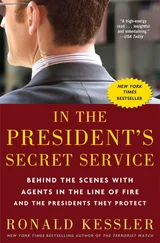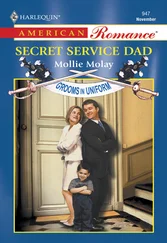Turner was very treacherously served by his impulsive foe. Perhaps Boyce thought that had O'Connell accepted Turner's services in that lonely field in Kildare, he might have been tempted, like Iago, to deal a stealthy stab.
Maguan of Saintfield is not to be confounded with Magan.
Ante , p. 72.
Many men recoil from affable persons who seem over-anxious to know them. Sir Gavan Duffy in Young Ireland states that Davis had been prejudiced against the subsequently most distinguished Darcy Magee, because he had 'obviously determined to transact an acquaintance with him.'
Tone's Journals , ii. 141. (Washington, 1847.)
United Irishmen, their Lives and Times , 1st ed. i. 40-75.
Ibid. 2nd ed. ii. 37.
Ibid. iv. 603.
La France et l'Irlande. (Paris, 1888.)
Castlereagh Papers , i. 294-5.
The puzzle is increased by the noble editor's arrangement of the letters – made without regard to chronological order.
Stone is the man who had been tried in 1795 for high treason, and found guilty. But Duckett, though a staunch rebel, may have had good reason for denouncing Stone three years later. Madame de Genlis, in her Mémoires , upbraids Stone with having treacherously retained some money which had been entrusted to him for Pamela. See tome iv. 130-1.
Clarke, when giving Tone his commission in the French army, asks him ( Journals , i. 151) if he knew one Duckett: 'I answered I did not, nor did I desire to know him.' Clarke replied that Duckett was 'clever.' Clarke, afterwards Duke de Feltre, stooped to ignoble tactics from which Tone recoiled. Clarke was a strong advocate for chouannerie (see Tone, ii. 96-9), and probably encouraged Duckett in his scheme for destroying the English dockyards and exciting mutiny in the fleet.
At Portsmouth, when Lord Bridport gave orders to put to sea, every ship at St. Helens refused to obey. The marines fired and five seamen were killed. The crew of the 'London' turned the guns, and threatened to blow all aft into the sea. The officers surrendered; the marines laid down their arms, and Admiral Colpoys and Captain Griffiths were put in confinement.
Leader of the mutiny.
Report of the Secret Committee of Commons, England , 1799.
As Tone suspected Duckett to be a spy, he doubtless cautioned Talleyrand against him. These misgivings spread from bureau to bureau.
Tone's Diary of June 16, 1798, praises the talents and activity of Bruix; 'but what could he do? In the first place, he had no money,' &c. – ii. 501.
Turner's instructions from the Home Office were, if he would not prosecute, to open a correspondence, at least, with leading rebels.
Joseph Holt, a Wicklow Protestant, published his memoirs in two volumes, but does not mention Duckett.
Castlereagh Papers , i. 263-4.
Duckett was secretary to Leonard Bourdon, who voted for the death of Louis XVI., and by his energy overthrew Robespierre, July 27, 1794. He headed the Conspiracy of the Faubourgs in 1795, and doubtless applauded Duckett in his scheme.
Castlereagh Papers , i. 263.
Vide Dr. Macnevin's memorial relative to a landing in Ireland. — Ibid. i. 305.
Tone's Journals , i. 208. (Washington, 1827.)
The Courier , describing the execution of the delegates, states that the inextinguishable vitality of one man named Lee presented a striking spectacle, and that extra balls had to be poured into his head before he was despatched! A letter from the Irish Under-Secretary of the day, now preserved in the State Paper Office, reveals that Lee was discovered to have been a most determined United Irishman, and had joined the fleet for the sole object of helping the cause he had at heart. Lee and Duckett seem to have acted in concert. How largely the British navy was composed of Irish sailors, and under what circumstances their discontent originated, appear from an amusing anecdote. Shortly before Trafalgar, the first lieutenant of a man-of-war, when making his rounds to see that all hands were at their guns, observed an Irish sailor kneeling in prayer: 'What! are you afraid?' exclaimed the officer. 'Afeard, indeed!' replied the tar, contemptuously. 'I was only praying that the shots of the French might be distributed like the prize money – the lion's share among the officers.' Tone assured Carnot that England had recently raised 80,000 Irishmen for her navy and marines. Carnot did not tell him in reply to reserve that statement for the marines themselves, but took it as strict truth. The computation, however, will not stand historic scrutiny. According to an official return, it appears that Ireland had furnished 11,457 men for the navy, and 4,058 for the marines.
Of course with the sanction of Bishop Douglas, whose name is often mentioned in the Castlereagh Correspondence .
I leave unchanged some of the circumstantial evidence which had convinced me of Magan's guilt, adding in brackets the criminatory letters subsequently found (January 1891).
Thus, in 'Croppies lie down,' to the tune of which, as Moore says, 'more blood had been shed than often falls to the lot of lyrical ballads' —
'The ruthless Fitzgerald stept forward to rule,
His principles formed in the Orleans school.'
Memoirs of Miles Byrne , iii. 247. (Paris: Bossange, 1863.)












